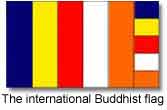Las playas de Salvador son, entre otras cosas, supermercados gigantes. Te sientas tan ricamente en tu tumbona y comienza el show. Algunas de las cosas que te ofrecen doscientas veces, aproximadamente, en el espacio de dos horas que estás tostándote al sol son: hamacas y alfombras; gafas de sol, vestidos y pareos; lociones solares; anacardos, cacahuetes y patatas fritas; huevos de codorniz, brocheta de gambas, Acarajé, queso fundido; helados; piscinas y flotadores para niños de alquiler; coco helado, cerveza y refrescos; azucarillos de los de las ferias; cigarros, DVDs, tatuajes, diarios...

Swimming pools and swimmers for rent. At right, the melted cheese´s seller more successful at Porto de Barra´s beach. Piscinas y flotadores en alquiler. A la derecha, el vendedor de queso fundido más exitoso de la playa de Porto de Barra.

Cashews. Anacardos.

Frosted sugar. Azucarillos.

Quail´s eggs. Huevos de codorniz.

Sun lotions. Lociones solares.




















